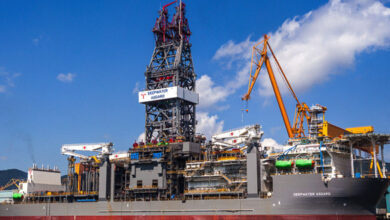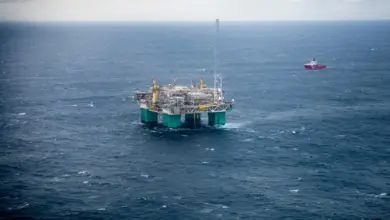New Zealand moves to reverse oil and gas exploration ban
To address gas security concerns and take advantage of economic potential, the New Zealand government is recommending changes that would, among other things, reinstate offshore petroleum exploration.
“Natural gas is critical to keeping our lights on and our economy running, especially during peak electricity demand and when generation dips because of more intermittent sources like wind, solar and hydro,” said Shane Jones, New Zealand’s Minster of Resources.
“When the exploration ban was introduced by the previous government in 2018, it not only halted the exploration needed to identify new sources, but it also shrank investment in further development of our known gas fields, which sustain our current levels of use.
“Without this investment, we are now in a situation where our annual natural gas production is expected to peak this year and undergo a sustained decline, meaning we have a security of supply issue barreling towards us.”
Per the official proposal, the government is considering the following changes to the Crown Minerals Act 1991:
- Reversing the 2018 ban on new petroleum exploration outside onshore Taranaki.
- Removing the 2018 restriction preventing new petroleum permit holders from accessing some Taranaki conservation for petroleum activities other than minimum impact activities. Conservation land protected by Schedule 4 of the CMA, including Taranaki Maunga, would continue to have the same protections in place.
- Changes to how petroleum exploration permits are allocated. Currently permits are allocated through a competitive tender process. The bill proposes allowing the option of using a competitive tender or non-tender method, called priority in time.
- Changes to the petroleum decommissioning requirements to align with international best practice, and better balance regulatory burden and risk. These include:
- Technical changes to financial securities requirements, the primary tool to manage the risk of a permit-holder failing to carry out or fund decommissioning. These changes will make financial securities more flexible to allow industry to set aside this money in a way that is cost-efficient and best suit the circumstances.
- Changes to trailing liability which allows the Crown to go back to previous permit-holders and make them decommission or recover the money for decommissioning. It is not proposed to remove trailing liability but limiting it to the most recent transferrer, providing greater certainty to previous permit-holders.
- Post-decommissioning liability remains on a permit-holder who decommissioned if something goes wrong after they have plugged and abandoned a well or left infrastructure in situ. This is a change from the current requirement to provide a payment or financial security for post-decommissioning liabilities, which sought to quantify the likely risk and cost in the future.
- Changes to provide important signals to the industry and international investors that New Zealand is “open for business.”
- Technical legislative changes to improve regulatory efficiency and ensure processes are working as intended, including fixing inconsistencies of terms and drafting errors.




